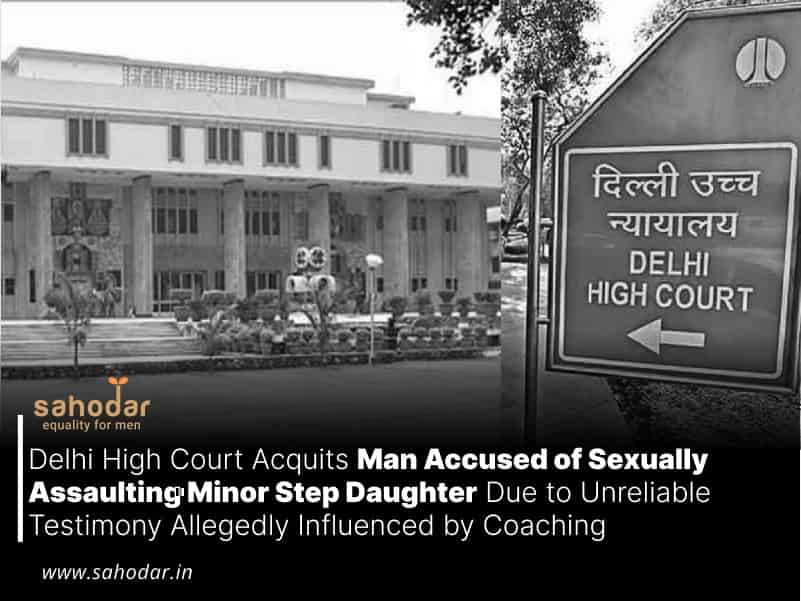On Wednesday, the Delhi High Court acquitted a man who had been accused of sexually assaulting his minor stepdaughter back in 2014. This decision overturned the conviction and life imprisonment sentence handed down by the trial court.
The Court stressed the vulnerability of child witnesses to coaching and manipulation, emphasizing the necessity for corroborating evidence, especially when signs of coaching are apparent in their testimonies.
In their ruling, Justices Suresh Kumar Kait and Manoj Jain, constituting the Division Bench, outlined several reasons for giving the accused the benefit of the doubt. They particularly underscored the unreliability of the victim’s testimony, given that she was only 12 years old at the time of the alleged incident.
“In view of our foregoing discussion, there are multiple reasons which compel us to grant benefit of doubt to the accused. Testimony of ‘S’ does not inspire much confidence as in her cross-examination conducted subsequently, she has categorically claimed that she had earlier deposed at the behest of her grandmother who was fed up with the alcoholic nature of the accused. Secondly, cousin, mother and grandmother of ‘S’ have not supported the prosecution case,” the Court said.
The Court highlighted the susceptibility of child witnesses to coaching and embellishment, emphasizing the risk of depending solely on their statements.
Although recognizing that a child’s testimony can result in convictions in sexual assault cases, the Court emphasized the significance of corroborating evidence, particularly when indications of coaching are present.
“Indubitably, in cases of sexual assault, testimony of a child witness can form the basis of a conviction. However, a crucial pre-requisite is that it must not be on account of any tutoring. Since child witness is susceptible to tutoring, the court should seek corroborating evidence, especially when signs of tutoring are evident in such testimony. A child has not enough of maturity and if tutored, such child can go to any extent of exaggeration and, therefore, it becomes unsafe to rely upon testimony of a child witness whose statement is found to be based on tutoring,” the Bench said.
The court took note of the fact that the accused had already been in custody for a period exceeding six years, while also identifying inconsistencies within the prosecution’s case. It emphasized the absence of supportive testimony from the alleged victim’s familial relations, comprising her cousin, mother, and grandmother, alongside the inconclusive findings of the DNA report.
Moreover, the court cast doubt upon the frequent visitations made by the victim to the accused during his detention, positing that such conduct appeared contradictory to the contentions put forth by the prosecution. It speculated that the maternal grandmother of the victim may have exerted influence upon her testimony, potentially motivated by frustration stemming from the accused’s reported issues with alcoholism, thus implicating a possibility of a false accusation.
“We also cannot be unmindful of the fact that despite the fact that ‘S’ had been sexually assaulted as alleged by the prosecution, she kept on visiting accused frequently in the jail which has also not been explained by the prosecution. If at all such act had been committed by the accused, she would not have dared to visit her stepfather repeatedly in the jail,” the Court said.
The Court censured the actions of the grandmother, characterizing her scheme to incarcerate the accused as perilously misguided. It further underscored that she lacked the authority to instruct her granddaughter in concocting allegations of sexual assault.

